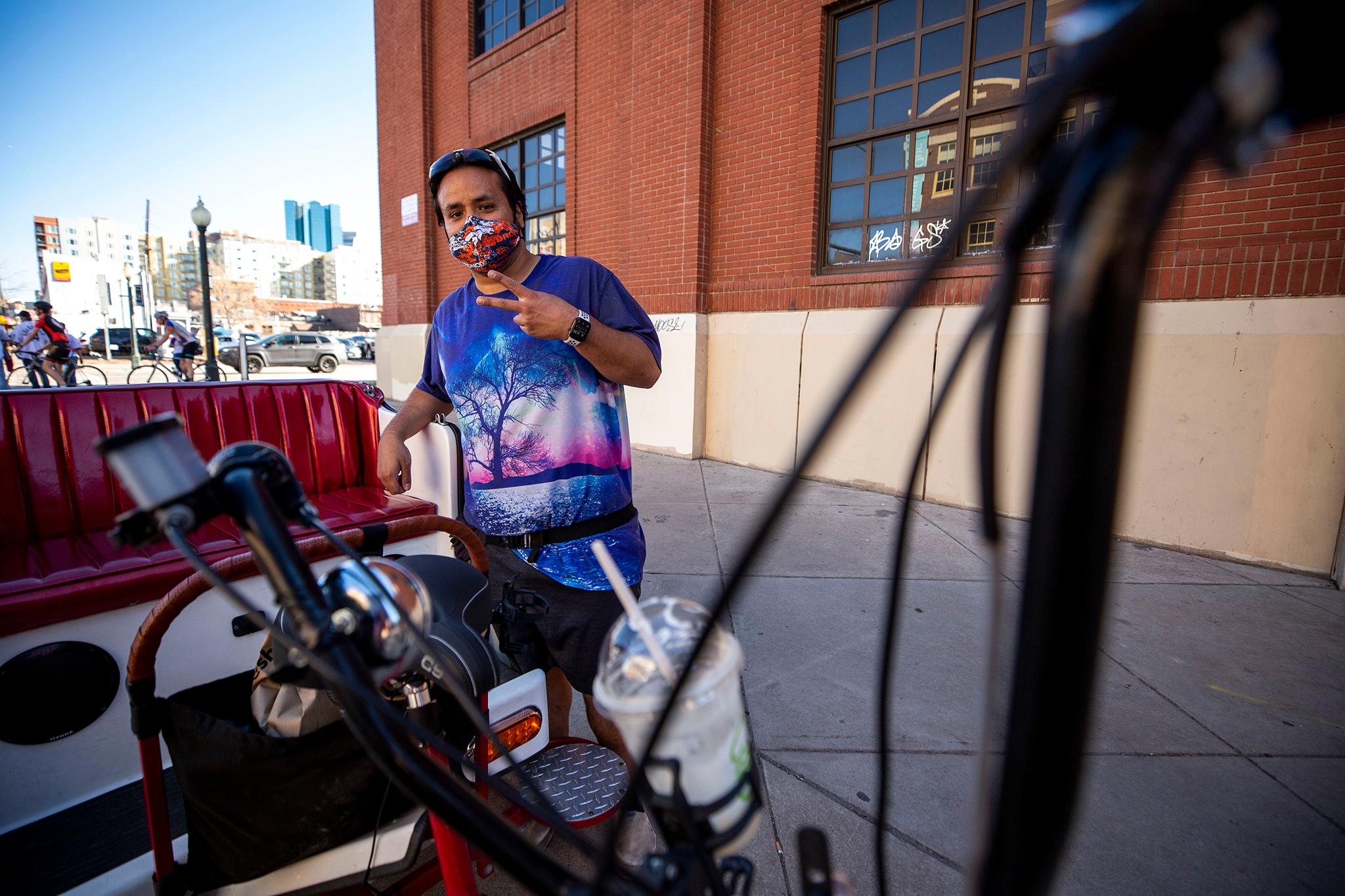Opening Day at Coors Field might as well be the Super Bowl in normal times, not necessarily for the hometown team, but for the universe of workers who rely on big crowds to make their bread, namely pedicab drivers.
The stadium only allowed 42.6 percent of fans to enter for the hallowed occasion, but LoDo was still swarming with people piling into bars. It's not a sign that the pandemic is over - Denver's cases numbers ticked up in the last week - but it was a good omen for some who have been scraping by through the last year. Still, Thursday wasn't exactly a huge win.
"Today really hasn't been that good of a day, but I like the fact that I see people out," Ric Campos said as he trolled for customers on his pearl and crimson pedicab. "This is probably the most active day I've ever seen in a long time, and it kind of gives me hope."
Campos is one of just 30 pedicab drivers who still have active licenses in the city, down from 181 a year ago. Of all the industries that require licenses to operate, his took the biggest plunge. While many let their paperwork expire, some like Campos powered through a cold winter without large events that can generate more than $500 a night.
Pedicabbing has been Campos' main source of income for the last 9 years, so the pandemic weighed on him. He did qualify for some relief when the federal Pandemic Unemployment Assistance program opened to gig workers, but he still had to work extra hours to make ends meet.
"I just started working more hours, completely revolving my life around this, rather than having a regular schedule. I had to refigure it out," he said. "There's no way I can live off of $200 a week."
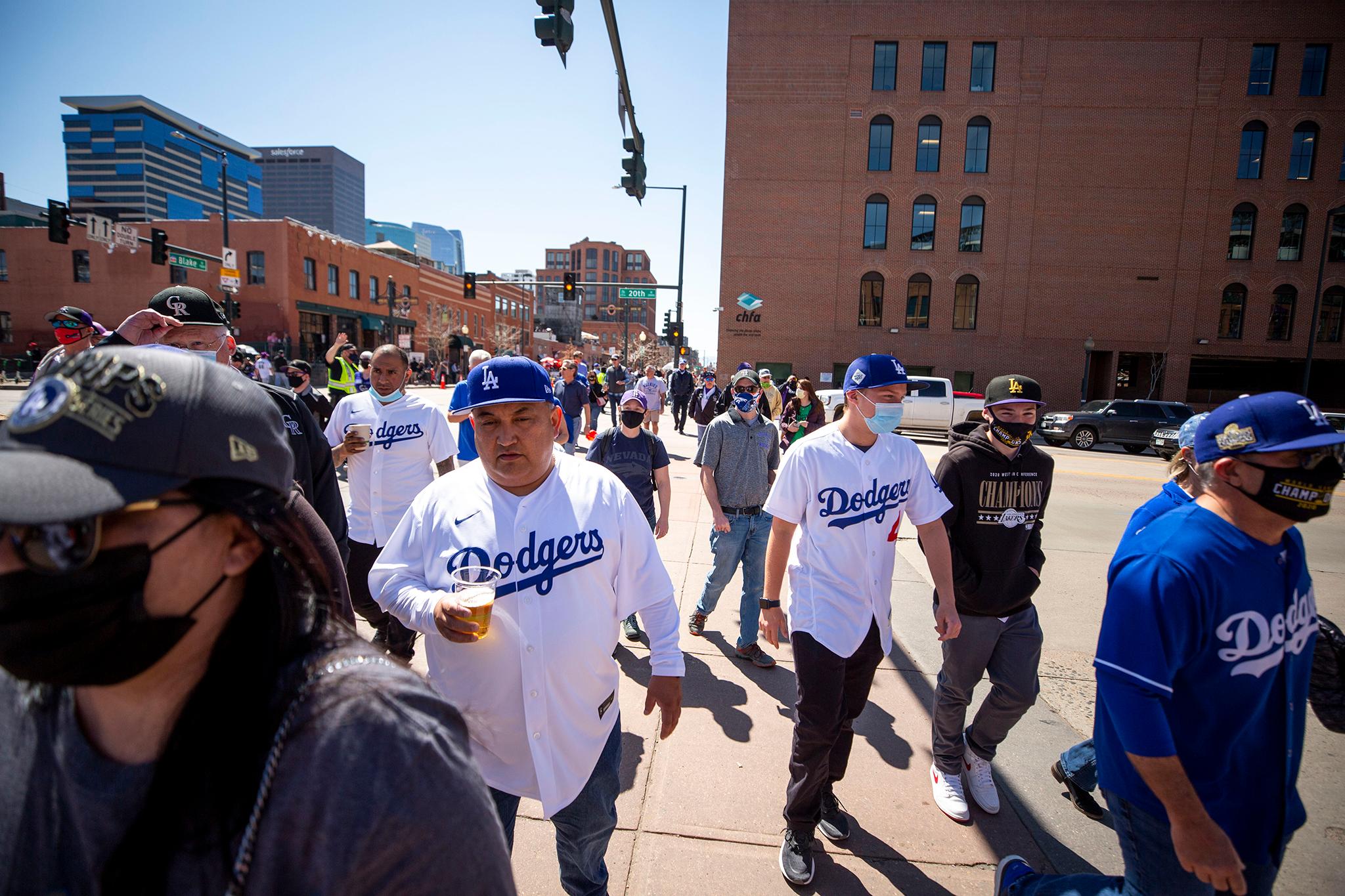
Pedicabbers flocked to the ballfield to rustle up some cash.
They got to work as fans streamed toward the stadium, trolling parking lots for people who didn't want to hoof the last half mile. Rides can go for $5 flat or $2 a block, depending on the driver and the negotiation. Tips are, of course, appreciated.
Brian McGinn, who owns 25 cabs that he leases out to drivers, had a monopoly. He and his crew were the only peddlers allowed to shuttle fans from the far reaches of Coors Field's official parking lot to its entrances. In the before times, he and a half dozen workers would constantly bike back and forth as more customers arrived, but he wasn't sure what to expect on Thursday.
"We decided to start off with three and just kind of see what happened. We just didn't know," he said. "They're definitely not jumping in as quick as they used to. But we'll see what June brings."
He estimated the crowd was equal to "a really good Thursday night" two years ago, certainly not game one against the Dodgers.
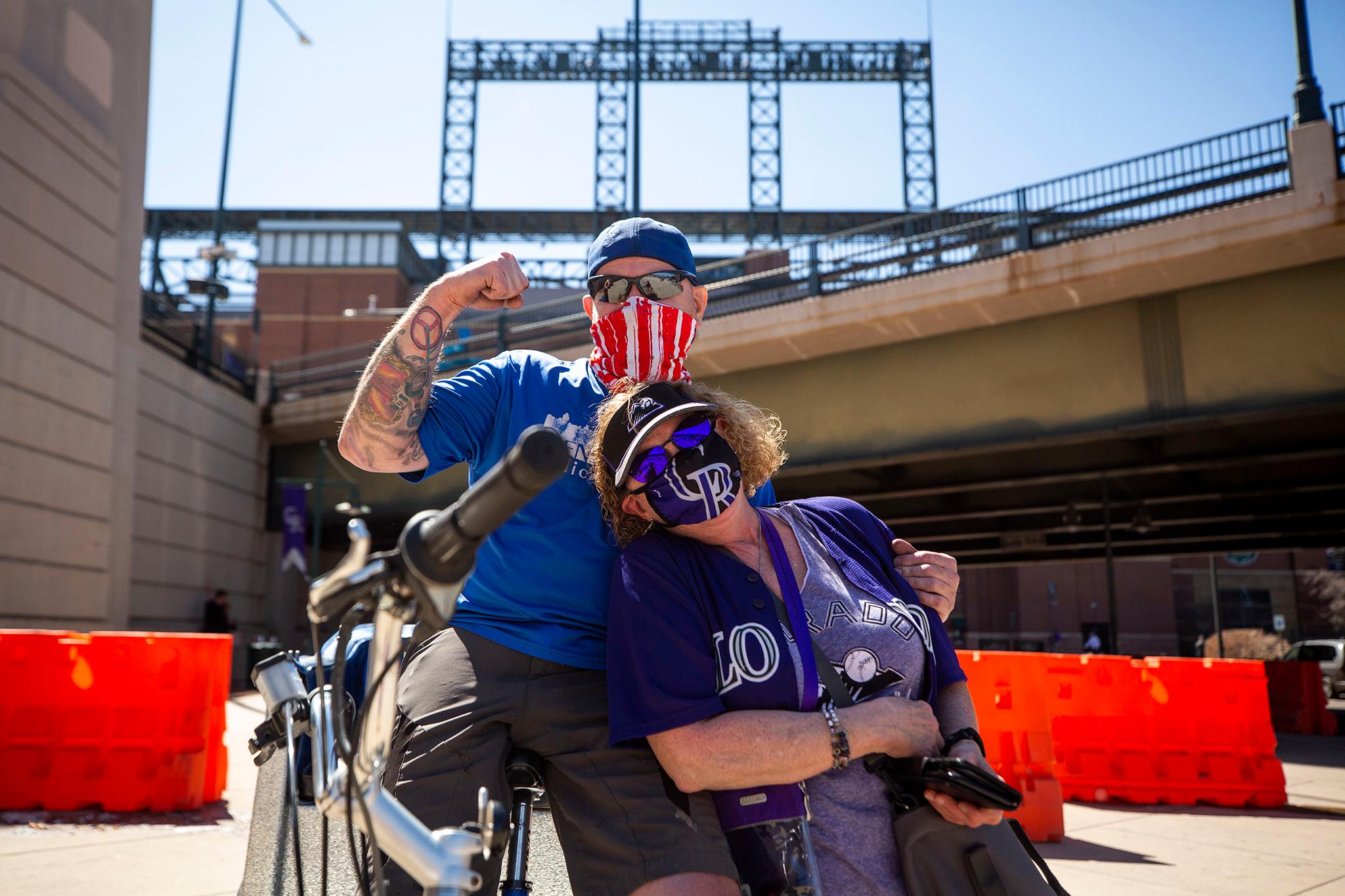
But there were other reasons to feel good about the day. For one, he got to reconnect with some colleagues he considers family. On the other, people were tipping generously.
"We're seeing more tips now than we would see in a regular year, so I think people are excited to be back and they're giving," said Mark Chavez, McGinn's longtime friend who's driven his cabs for about six years. "It's a good sign."
Both men have other income sources, and Thursday was their first day back pedicabbing. Those who powered through the winter, like Frank Kwiatkowski, had to figure out some new tactics.
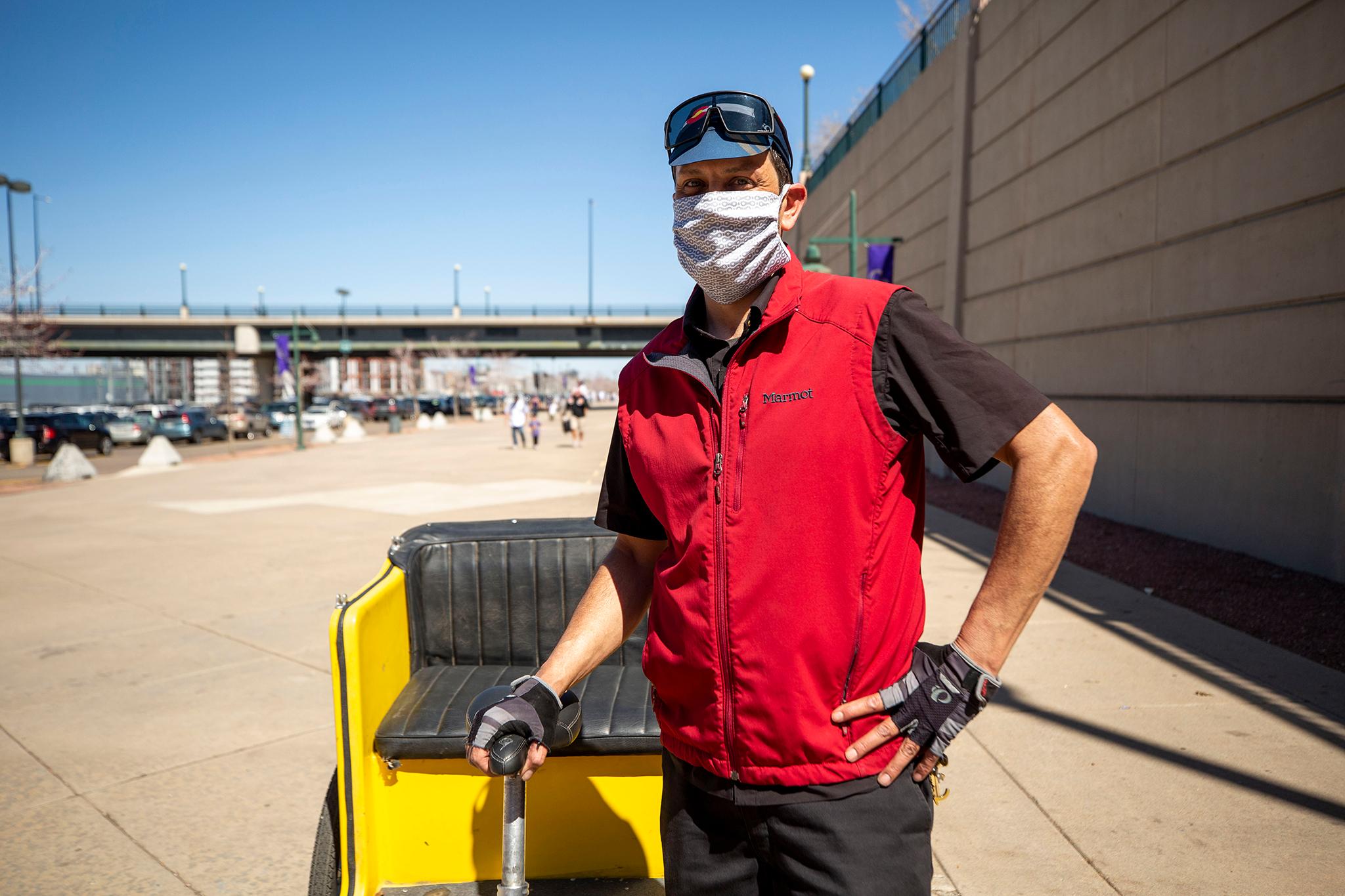
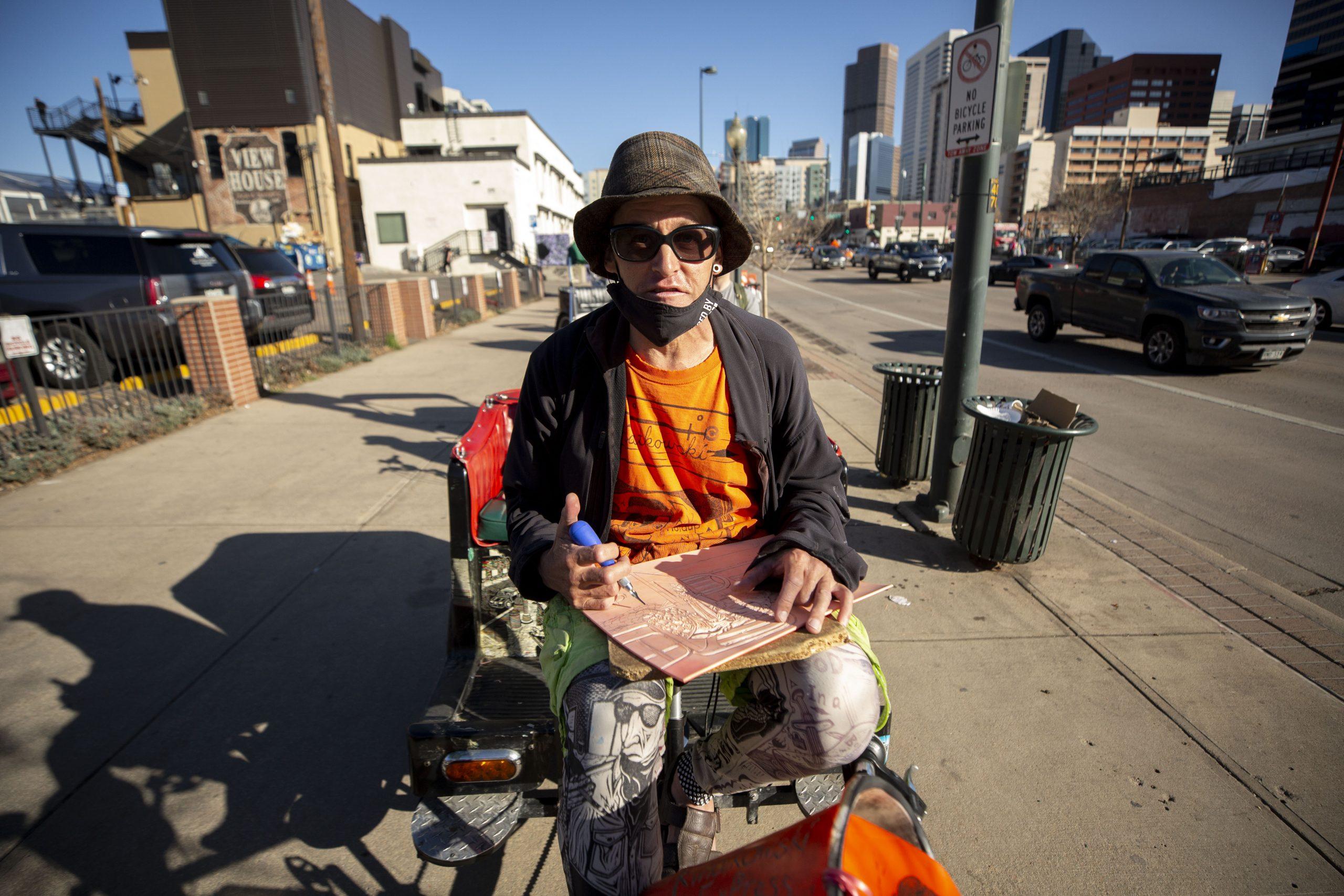
Kwiatkowski said he pivoted to tours in the last year. Most of his clients were tourists who wanted to see the city, so he sold them on 30 minute tours netting $30 before tips.
"There's not as many drunk local people as, say, three to four years ago, but the clientele's been pretty good to me overall," he said, waiting in a queue of pedicabs waiting to scoop customers after the game. It was a long line, probably consisting of most of the active license holders left in the city.
The Opening Day crowds pointed to both recovery and the inequity of the last year.
Andrew Friedson, a University of Colorado Denver economics professor, said we should be careful not to read too much into the health of the pedicab industry as a direct indicator of the city's economy. Still, he said the business gives us economic factors others cannot.
The number of open restaurants, for instance, only tells us how many businesses have survived the last year. But since pedicab drivers rely on consumer activity in a place like LoDo, their numbers can tell us how intense consumer spending really is. Their dwindling ranks resulted from the pandemic shutdown, but that the remaining drivers feel good about the future points to a broader economic rebound.
"There's a few different things that's going to be determining individual demand for these types of things, and one of the big ones at play at the moment is: how safe do people feel? At the moment we're in a situation where people are gradually feeling safer and safer, and are more and more willing to engage in economic activity," he told us.
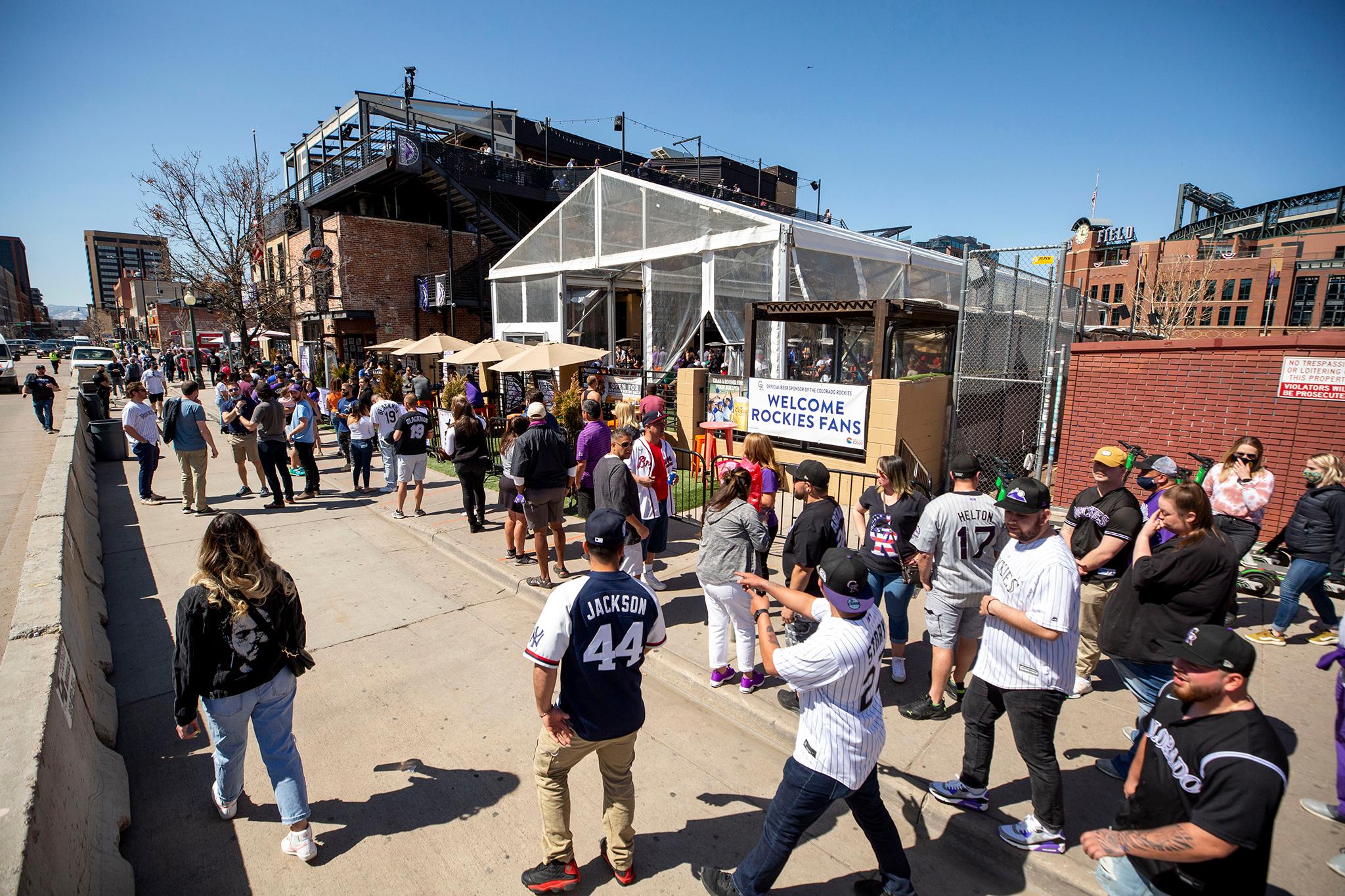
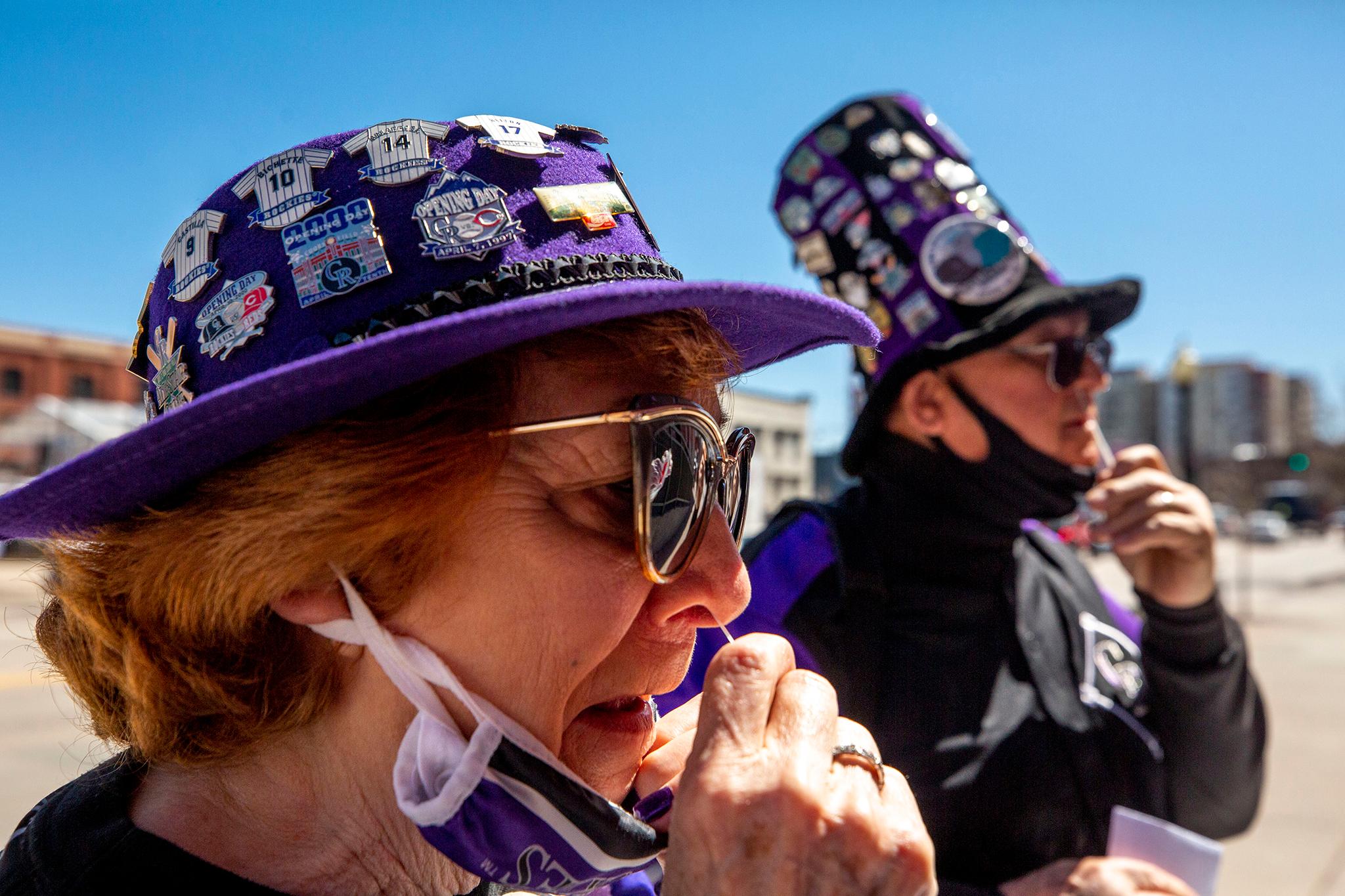
But these trends don't happen in a vacuum. Friedson said both workers and consumers are trading off economics for public health. Increasing activity could very well impact COVID case numbers.
"Unfortunately, the behavior feeds back into this. As people feel safer and safer, going out and circulating, that slows the recovery from the pandemic," he said. "It's a balancing act."
Most of the pedicab drivers we spoke to said they felt comfortable working, since every transaction takes place outside. But Jesus Rodriguez Jr., who was selling bagged chips with his dad, said he was not feeling great about it.
Both Rodriguez's mother and father got COVID a few months ago. It hit them hard, so coming back out onto a crowded block gave them some pause. Still, Jesus Rodriguez Sr. makes his entire livelihood by selling snacks near venues like Coors Field. While his trade-off was a hard choice to make, it was a necessity.
"It's problematic of course," the younger Rodriguez said for his father, whose first language is Spanish. "When we come in contact with other people, we have no control."
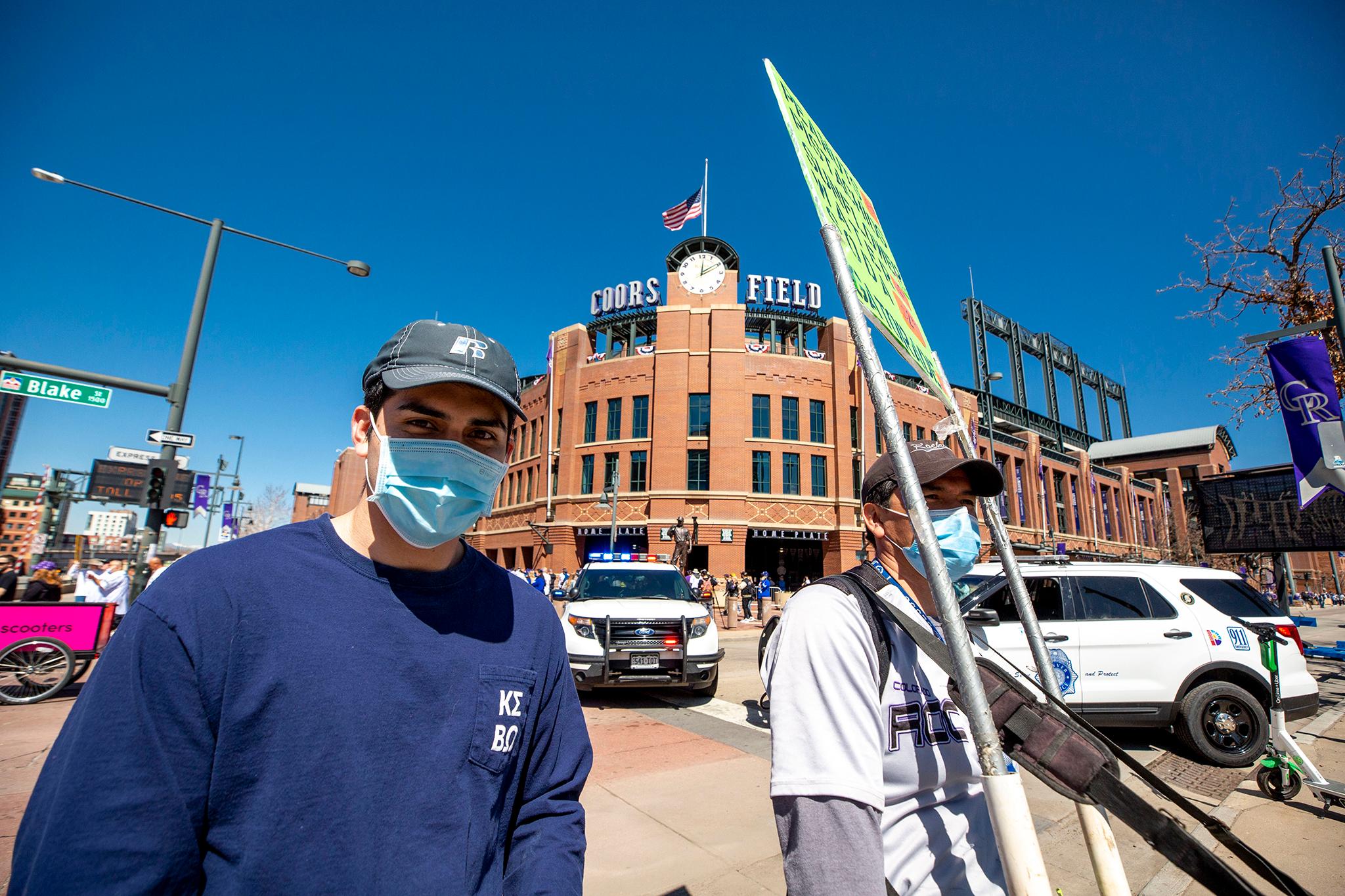
This difficulty, Friedson said, illustrates something unique about the moment we're in. People with less education are more likely to be unemployed during a normal recession; when they try to bounce back from this downturn, they also risk getting sick.
"This is where the pandemic, both in terms of economics and public health impacts, has been very unequal," he said, "and it's not pretty."
The recession exacerbated other economic challenges in Denver, like the rising cost of living.
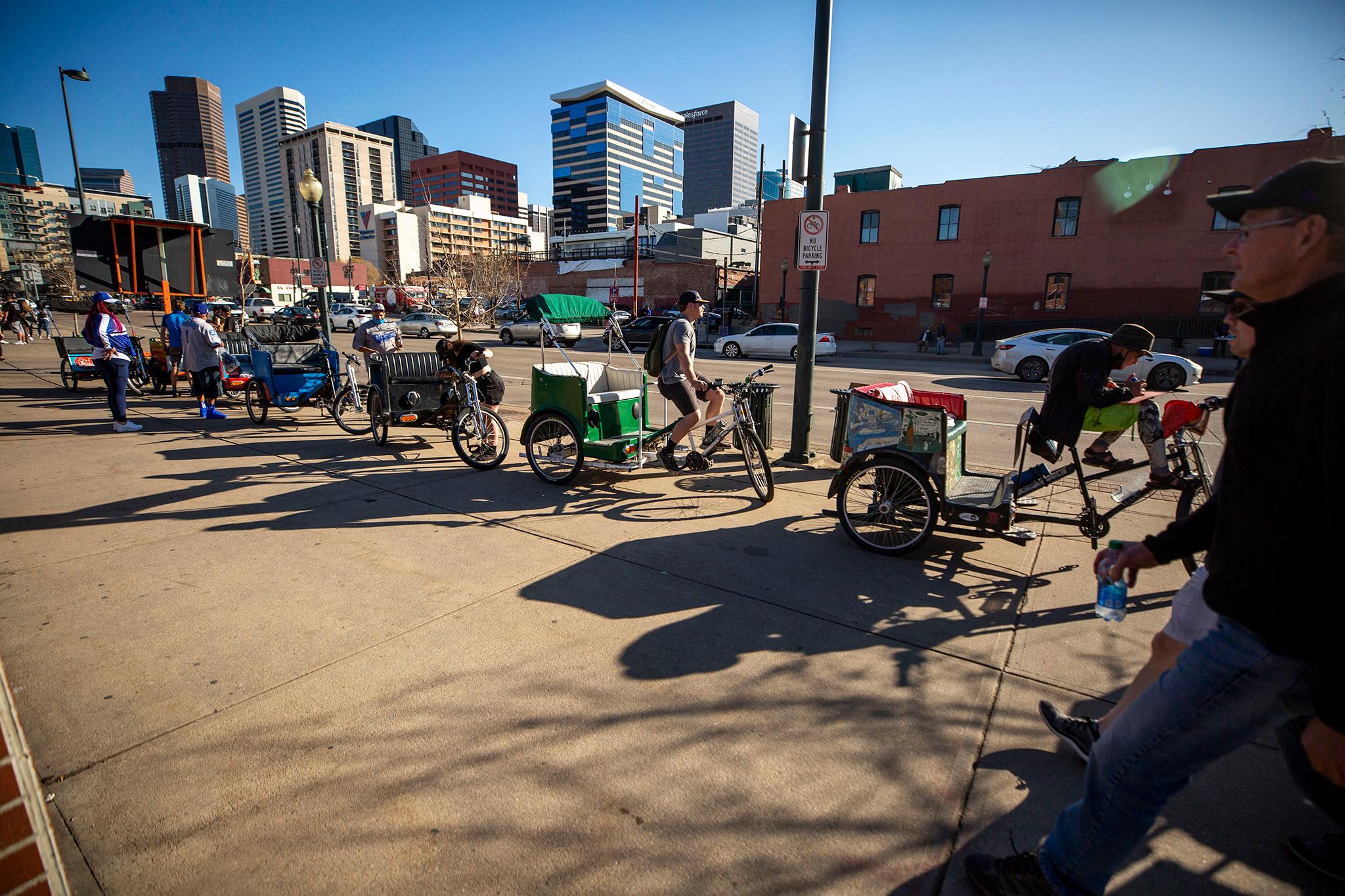
Skye Mitchell was one of the pedicab drivers who recently dropped out of the business. For him, it was less about available customers and more because his insurance company stopped offering the cheap business liability plan he relied on to keep his license. He can't afford the other options, so he quit the job that kept him afloat before the pandemic. And without that income, he's not sure he'll stay in town.
Swapping three wheels for four, he's thinking of jumping into an RV he fixed up and leaving Denver for good.
"It's just so expensive to be in this city anymore," he said.

